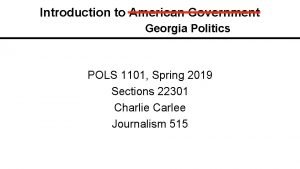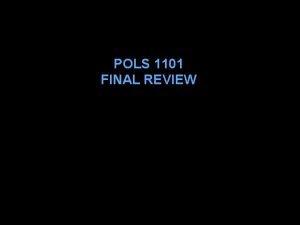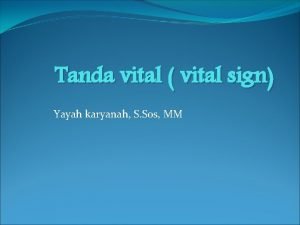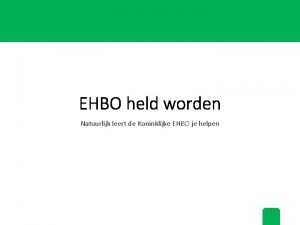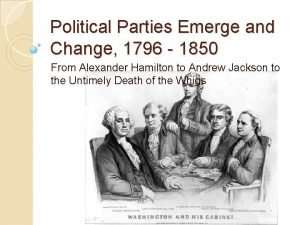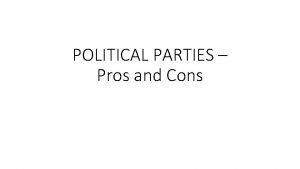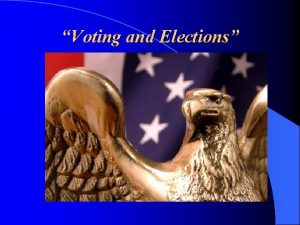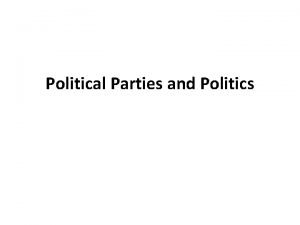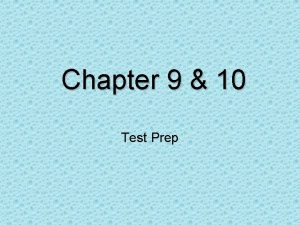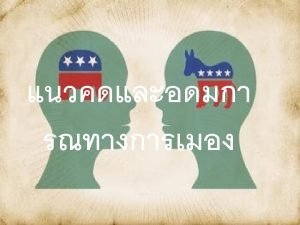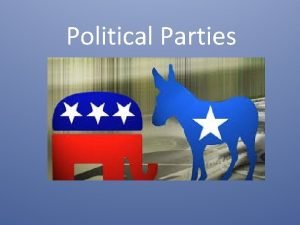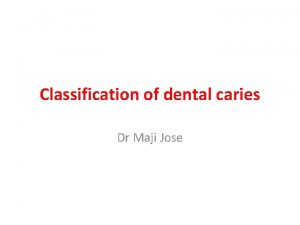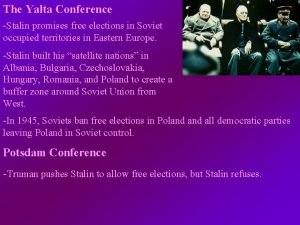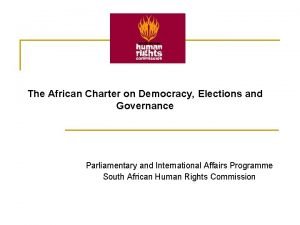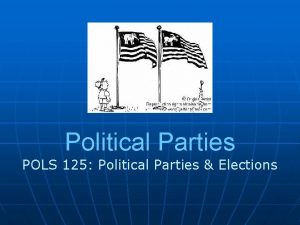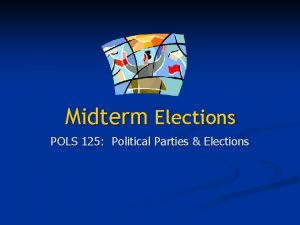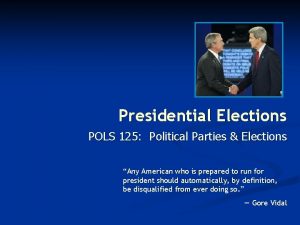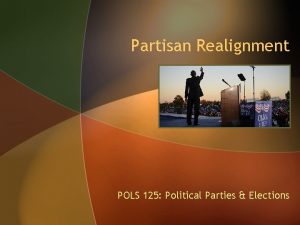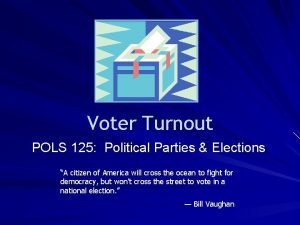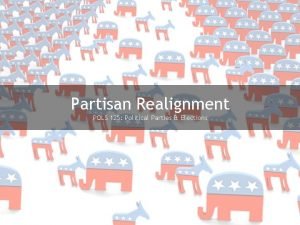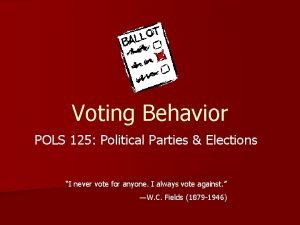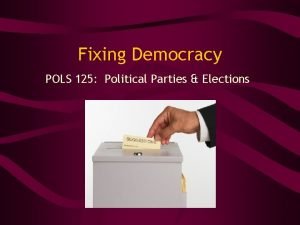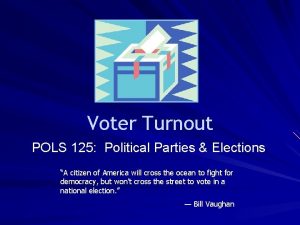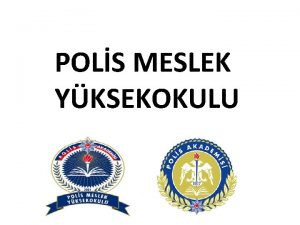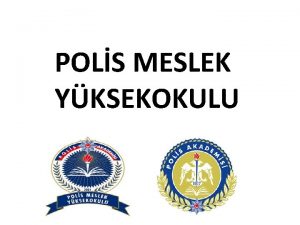Third Parties POLS 125 Political Parties Elections Saying
















- Slides: 16

Third Parties POLS 125: Political Parties & Elections “Saying we should keep the two-party system simply because it is working is like saying the Titanic voyage was a success because a few people survived on life rafts. ” —Eugene Mc. Carthy


Third Party Year % of Popular Vote Electoral Votes Fate in Next Election Anti-Masonic 1832 7. 8 7 Endorsed Whig candidate Free Soil 1848 10. 1 0 Received 4. 9% of vote Whig-American 1856 21. 5 8 Party dissolved Southern Democrat 1860 18. 1 72 Party dissolved Constitutional Union 1860 12. 6 39 Party dissolved Populist 1892 8. 5 22 Endorsed Democratic candidate Progressive (T. Roosevelt) 1912 27. 4 88 Returned to Republican party Socialist 1912 6. 0 0 Received 3. 2% of vote Progressive (La. Follette) 1924 16. 6 13 Returned to Republican party States’ Rights Democrat 1948 2. 4 39 Party dissolved Progressive (H. Wallace) 1948 2. 4 0 Received 0. 2% of vote American Independent 1968 13. 5 46 Received 1. 4% of vote John B. Anderson 1980 7. 1 0 Did not run in 1984 H. Ross Perot 1992 18. 9 0 Received 8% of vote Ralph Nader 2000 2. 7 0 Received 0. 4% of vote

Barriers to Entry n n Ballot access restrictions Campaign finance laws Media coverage Presidential debates

The “Spoiler” Effect

Access to Presidential Debates The Commission on Presidential Debates selects candidates basis party of theand following criteria: Is this on fairthe to third Independent candidates? Do we set theeligibility bar too high? 1. Evidence of Constitutional v v v Must be at 35 years of age; Must be natural born citizen, and a resident of the U. S. for at least 14 years; Must be otherwise eligible under the Constitution; 2. Evidence of ballot access v The candidate must qualify to have his/her name appear on enough state ballots to have at least a mathematical chance of securing an Electoral College majority; 3. Indicators of Electoral support v The candidate must have a level or support of at least 15% of the national electorate as determined by five selected national public opinion polling organizations;

The Iraq ballot offered a choice of 111 parties.

Achieving an Optimal Result How can we best aggregate preferences to: Determine a clear winner Avoid “wasted” votes Prevent “spoilers”

IRV: An Alternative to Plurality Voting The plurality system used in U. S. elections allows voters to cast ballots only for their top choice. By ignoring how voters might rank the remaining candidates, it opens the door to unsettling, and even paradoxical results.






Criticism of IRV n More complex n Requires new voting machinery n Voter fatigue Are reforms like this at odds with third parties? More parties could make it cumbersome and impractical.

The Future of Third Parties Will the internet eventually displace major parties, to the advantage of third party and independent candidates? As Everett Ehrlich says: “Now anyone with a Web site and a server, a satellite transponder and about $100 million can have—in a matter of months—much of what the political parties have taken generations to build. ”
 Uga pols 1101
Uga pols 1101 Pols 1101 midterm
Pols 1101 midterm Pols teller
Pols teller Steunverband pols aanleggen
Steunverband pols aanleggen Political parties
Political parties Political parties pros and cons
Political parties pros and cons Brainpop presidential election
Brainpop presidential election A political party is an association of
A political party is an association of The spoils system made political parties more powerful by
The spoils system made political parties more powerful by Sistemas democraticos
Sistemas democraticos Political parties
Political parties Political parties
Political parties Forward and backward caries definition
Forward and backward caries definition Mount and hume classification
Mount and hume classification Political cartoon french revolution
Political cartoon french revolution Stalin promise free elections
Stalin promise free elections African charter on democracy, elections and governance
African charter on democracy, elections and governance
